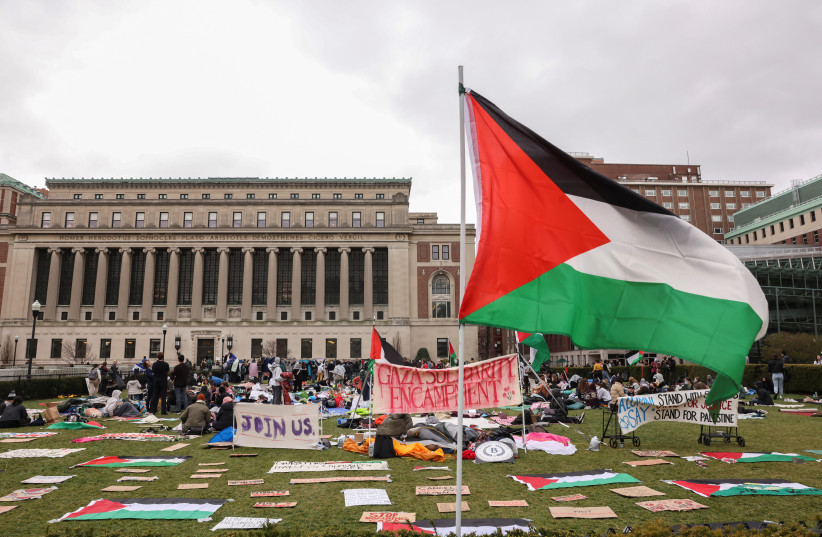"Do not oppress and do not be oppressed" were the words from Iran's Supreme Leader Ayatollah Ali Khamenei dramatic letter to American university students, praising their "defense of the Palestinian people." Released on Thursday, the letter came amid a wave of pro-Palestinian encampments across US campuses, which had led to heightened tensions and safety concerns for Jewish students.
Khamenei's letter, asserting that "As the page of history is turning, you are standing on the right side of it," lambasted the US government's support for Israel and framed the students' actions as part of a broader "Resistance Front" against Zionist oppression. He described the Israeli government's treatment of Palestinians as a continuation of decades of genocide and apartheid, stating, "The apartheid Zionist regime's genocide today is the continuation of extreme oppressive behavior which has been going on for decades."
Heated atmosphere amid university protests
This message intensified the already heated atmosphere on many campuses. Over the past two months, encampments had spread, calling for a ceasefire in Gaza and demanding that universities divest from companies with ties to Israel. Jewish students reported feeling increasingly unsafe, with many citing antisemitic language and threats emerging from these protests. According to a recent survey, 61% of Jewish students who witnessed these protests found them to be threatening or derogatory.

University administrations struggled to balance the right to protest with the need to maintain campus safety. In many cases, authorities dismantled encampments to prevent disruptions to graduation ceremonies.
Northwestern University, for instance, reached an agreement with protesters that included restarting a dormant advisory committee on investment responsibility and funding positions for Palestinian faculty and students.
However, the encampments sparked broader debates about free speech and the role of university policies in addressing contentious international issues. At the University of California, Los Angeles, for example, clashes at a pro-Palestinian encampment led to increased security measures and ongoing disputes about the university's handling of the protests.
Khamenei's letter called on the students to continue their "honorable struggle" against what he termed the "brutal Zionist regime," and asserted that the Resistance Front had grown stronger and would continue to do so. He emphasized the importance of standing up for justice, quoting the Quran: "Do not oppress and do not be oppressed" (2:279).
